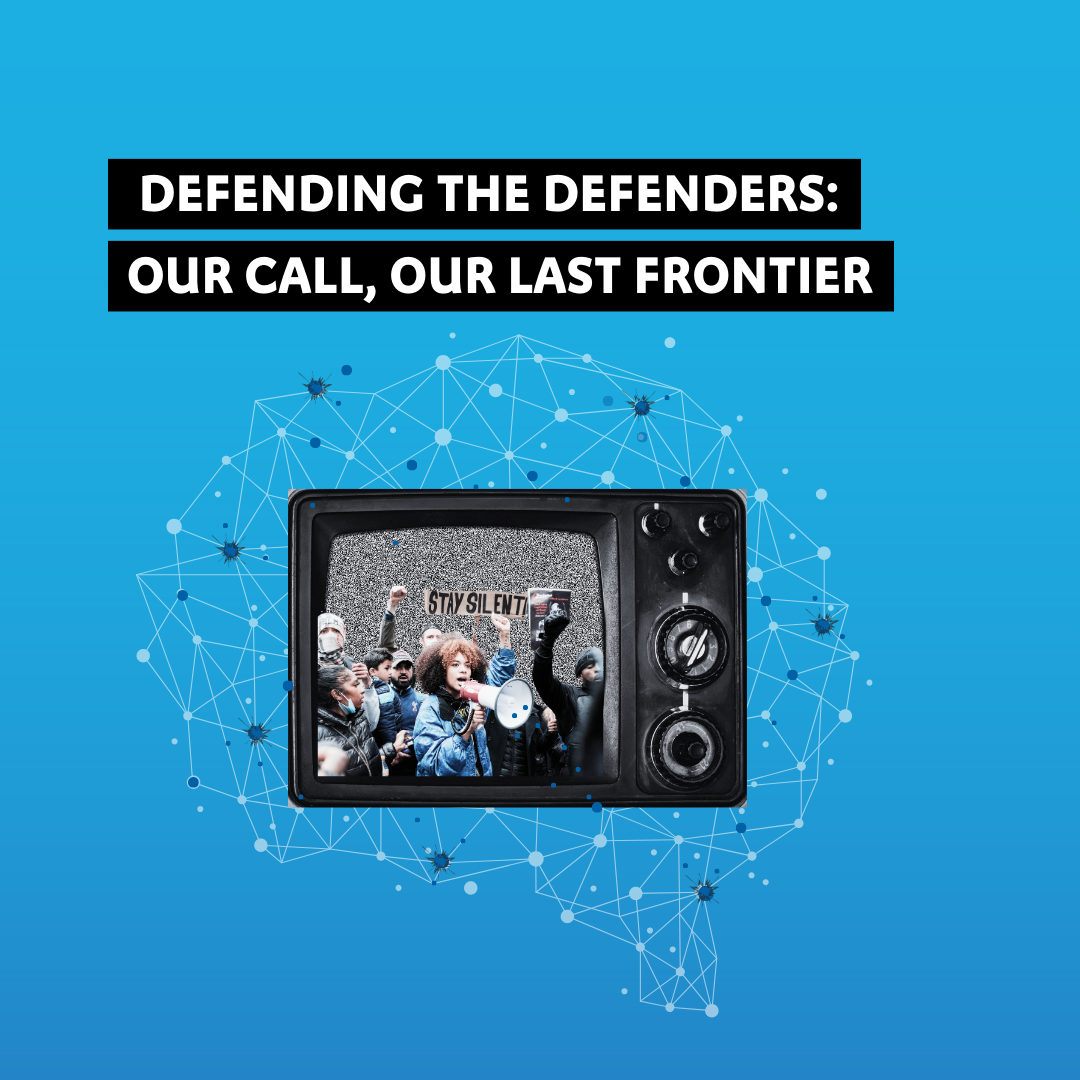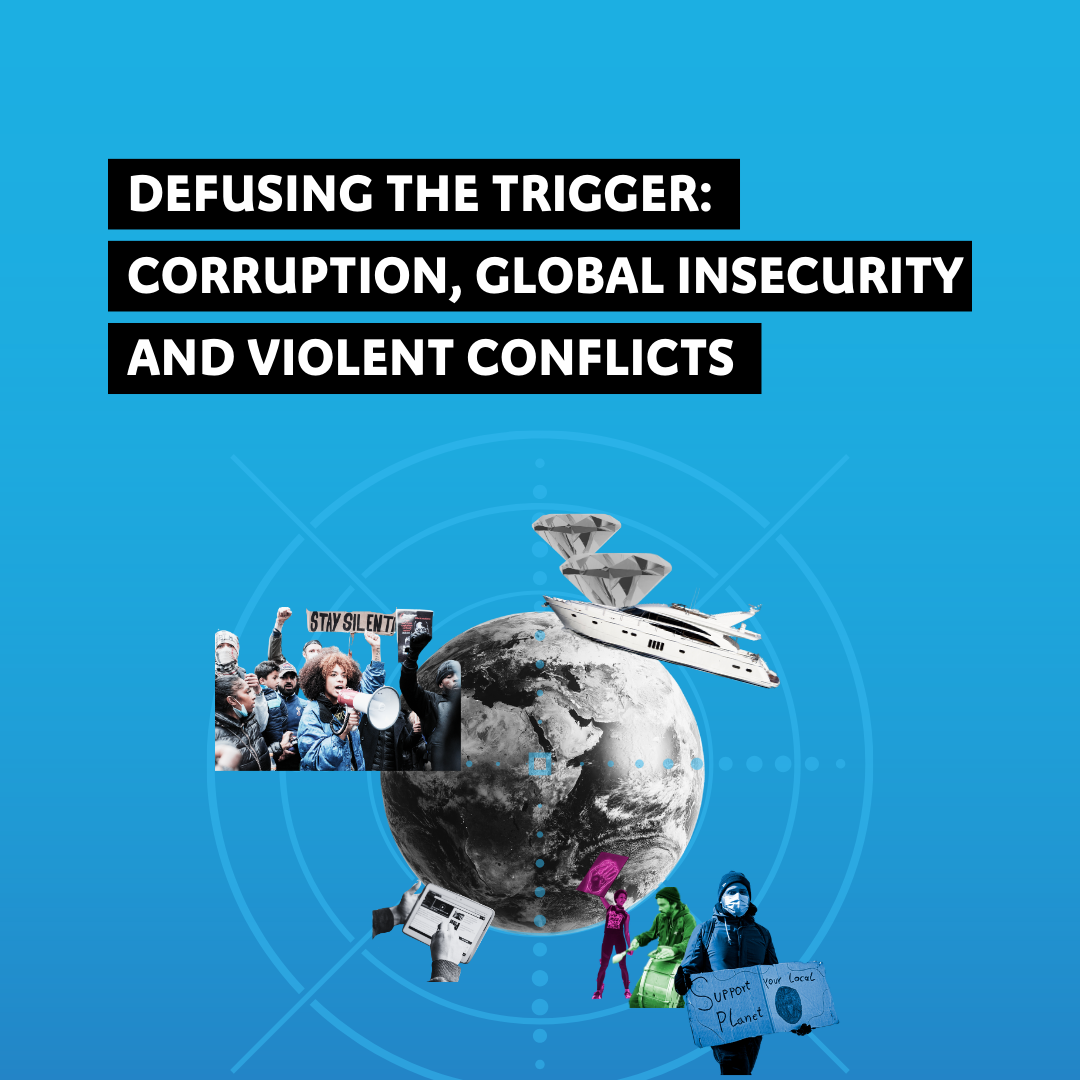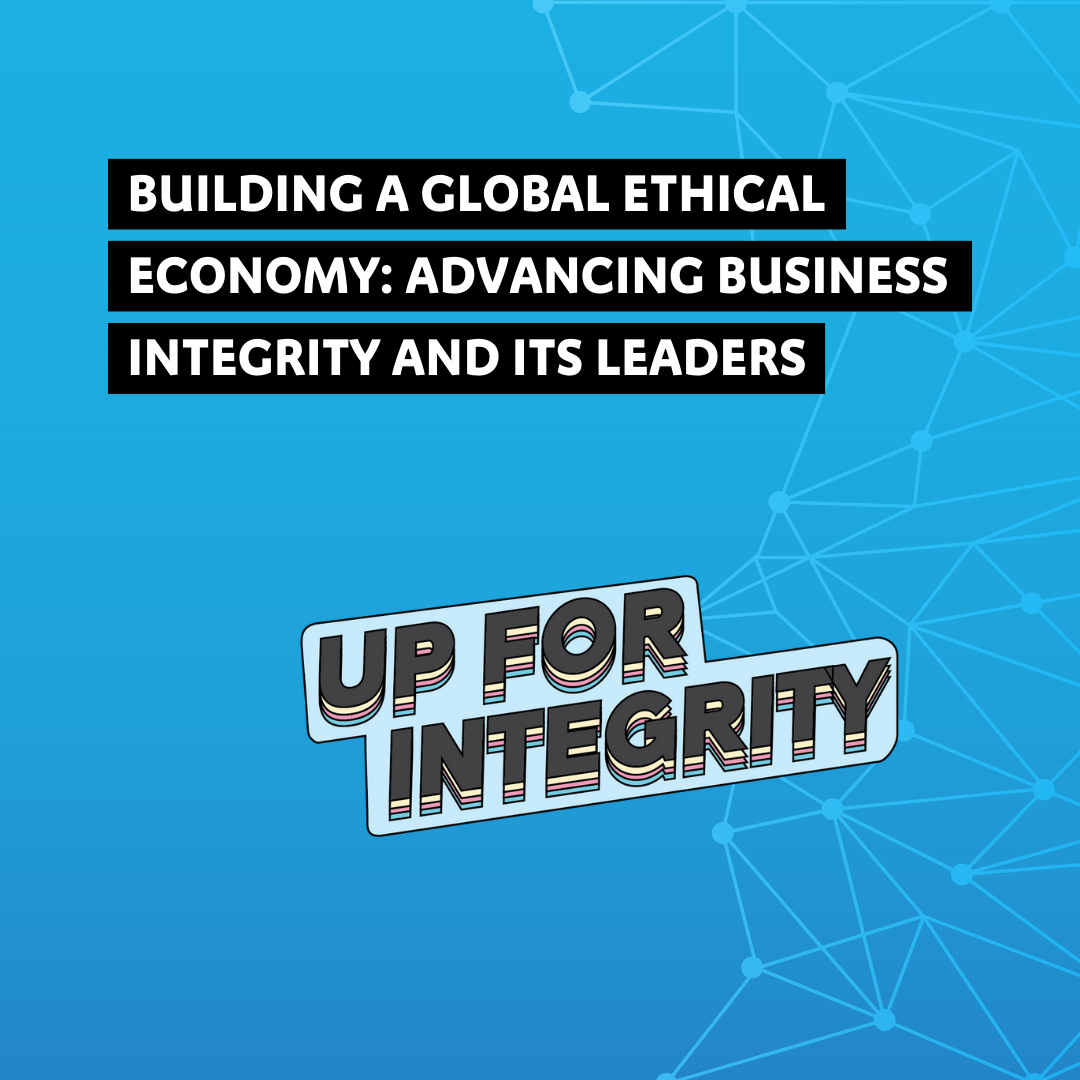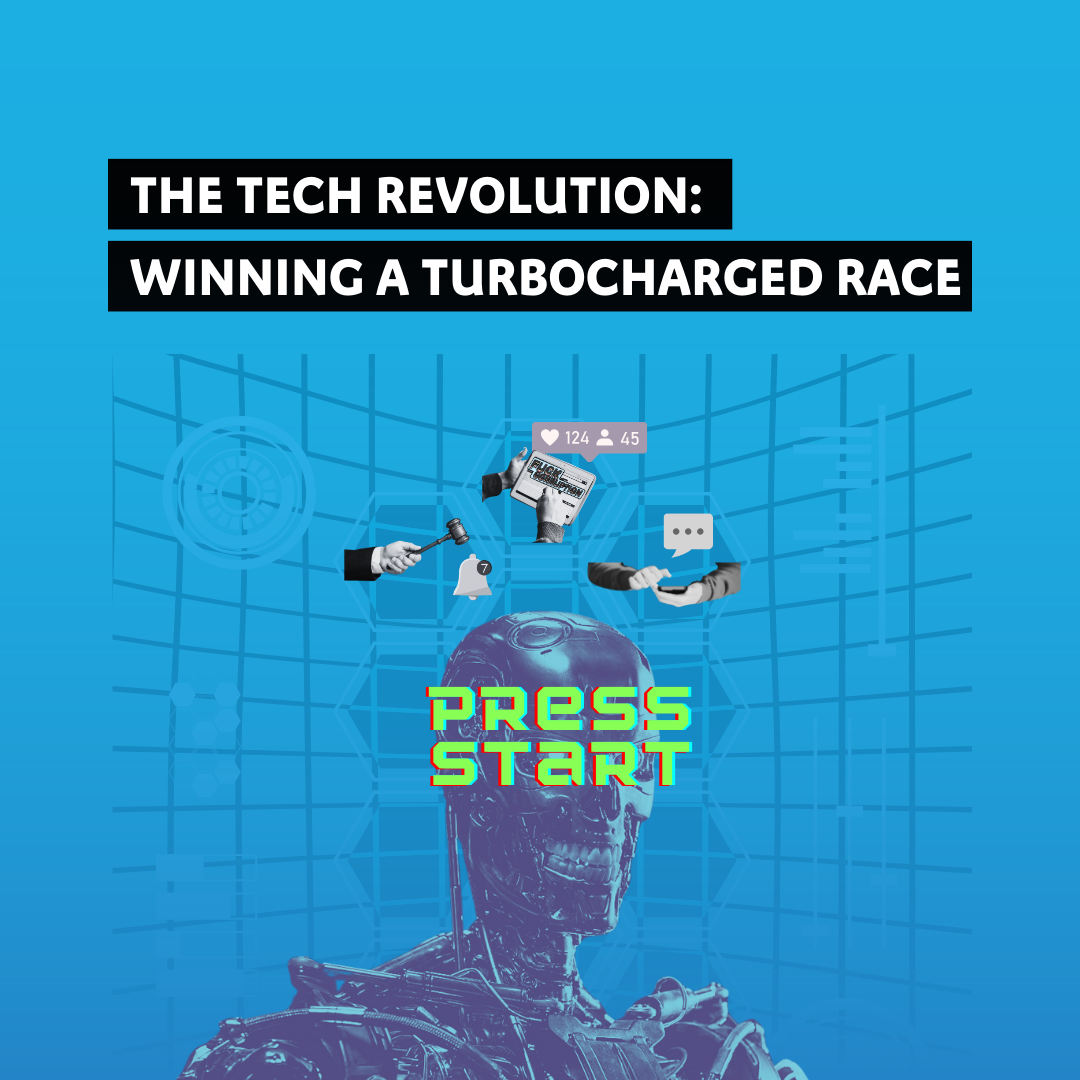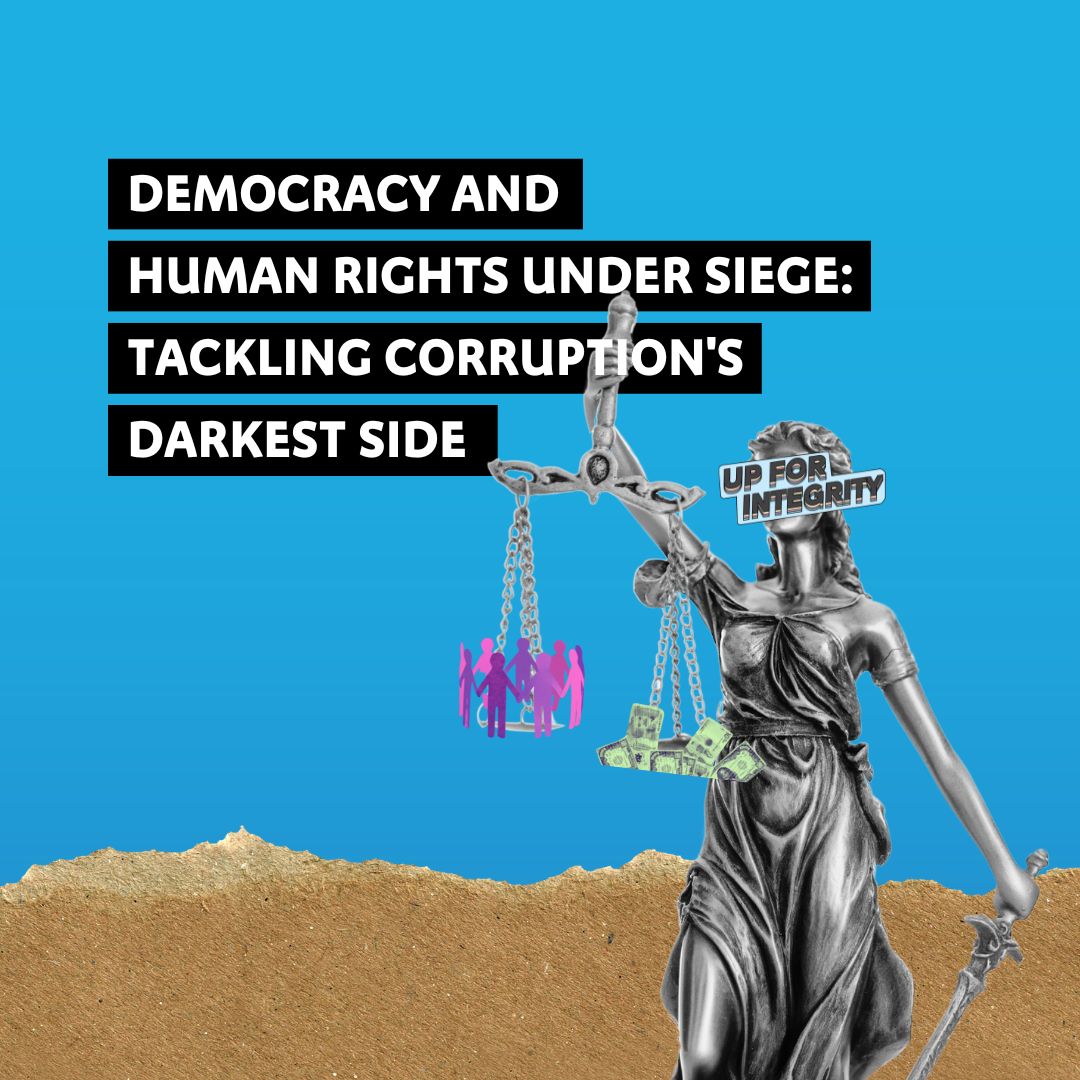View #IACC 2024 Thematic tracks
Kleptocrats, Criminals, Traffickers, and Accomplices: It Is Time to Close Their Global Enterprise
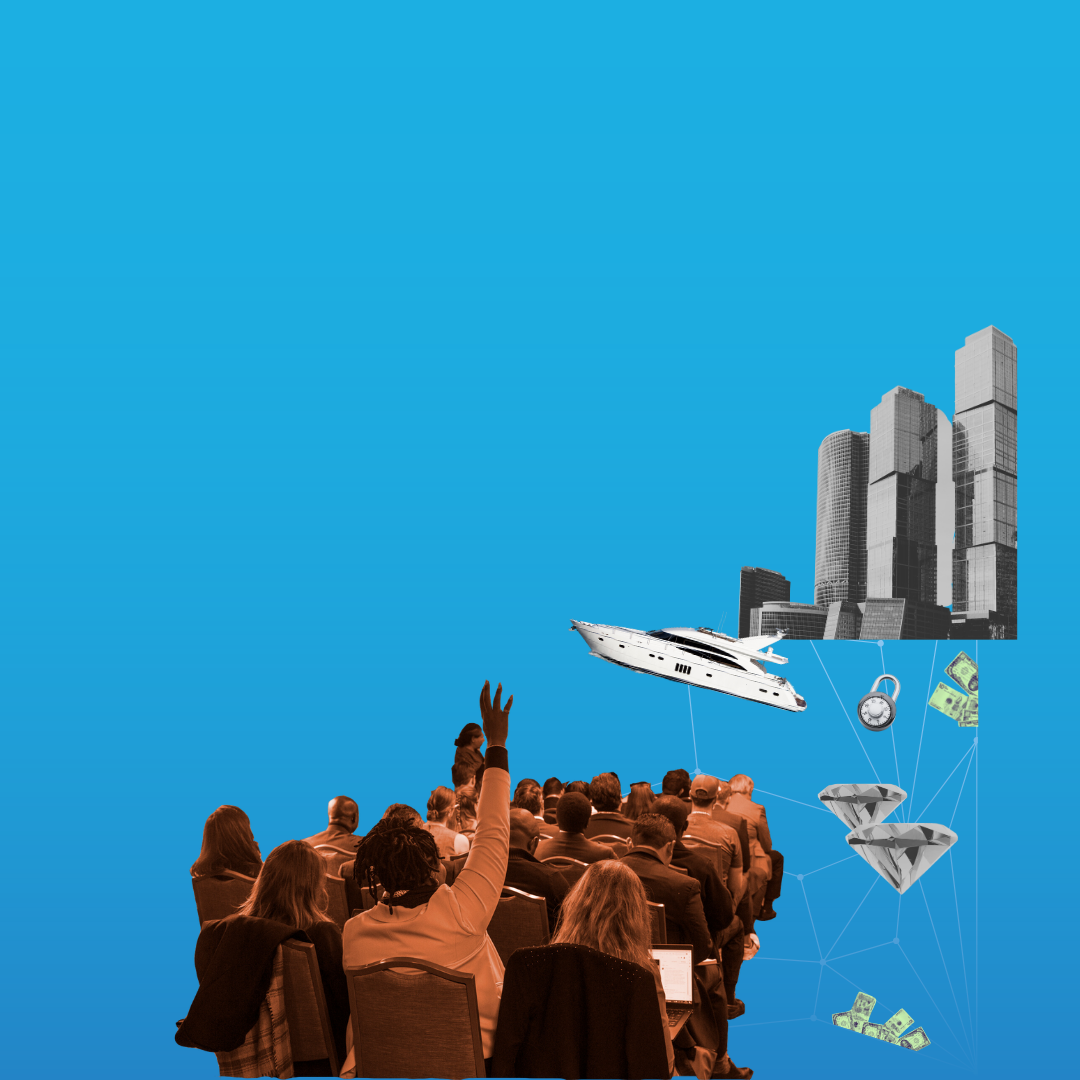
The news is old, already: Kleptocrats, criminals, traffickers and their accomplices have been benefitting from the failure of anticorruption reforms and weak democratic institutions. They are continuously evolving and to date, they run a highly sophisticated global enterprise: It is an invisible 1 billion USD per year scheme, right under our noses.
Its complex, resilient, and surprisingly innovative. It is a web of networks, individuals, and groups. It includes kleptocrats, politicians, business leaders, enablers, bankers, criminals, and anyone in between. They thrive through a single, highly profitable, but often deadly ecosystem.
Organised crime is a global risk that cuts across all thematic areas of the 21st IACC agenda. We look to uncover -and learn from- their strategies, address anticorruption reform failures, while assessing what from our work is having the best impact against this dark criminal enterprise.
Workshops
-
Asset Recovery Speed Dating: 18 Countries in One Hour
This workshop is focusing on the findings from a comprehensive study prepared by the Basel Institute of 18 jurisdictions that are also OSCE states. The findings are critical to addressing kleptocrats, oligarchs and the recover of illicit assets of the rich and powerful. From civil forfeiture laws to social reuse, this study has tools and lessons relevant to multiple stakeholders.
Organization for Security and Co-operation in Europe (OSCE)
Organization for Security and Co-operation in Europe (OSCE), Basel Institute on Governance, U.S, Department of Justice, Chief Prosecutor Italy and Office of the Hogh Commissioner on Human Rights, United Nations
-
How to Investigate Transnational Organized Crime Groups? NarcoFiles.
Organized crime groups have changed. Now, they use technology, they have become more transnational and the use of people or new tools to achieve their objective does not matter: the trafficking of drugs, people, and even animals. All with the same purpose: Obtain million-dollar profits that are observed internationally through the purchase and sale of assets, and money laundering, among others.
Organized Crime and Corruption Reporting Project (OCCRP)
-
Effective Global Asset Recovery. Can Ukraine's case be a Success Story?
The workshop will address developments, challenges and solutions in recovering the assets of corrupt officials from abroad, contributing to the global effort to accelerate asset recovery. Using the specific cases of Ukraine and Latvia, the panellists will discuss the main challenges and steps to be taken, encouraging the expert society and stakeholders to cooperate and develop joint solutions.
Transparency International Ukraine (TI - Ukraine)
Transparency International Ukraine (TI - Ukraine), National Anti-Corruption Bureau of Ukraine (NABU), Corruption Prevention and Combating Bureau in Latvia and Basel Institute on Governance
-
Corruption in Global Supply Chains: Organised Crime’s Deadly Tactic
This workshop will give actors working in the anti-corruption field a richer view of the harmful impact of corruption in global supply chains linked, in particular, to organised crime. Those working on the front line in high-risk areas will share specific challenges while also highlighting new measures to combat them.
World Customs Organization
World Customs Organization (WCO) , Australia Border Force (ABF), Global Initiative Against Transnational Organized Crime (GI-TOC), Transparency International Secretariat (TI-S) and the Maritime Anti-Corruption Network (MACN)
-
Convergence for Debt Transparency: Debt & Kleptocracy Nexus and The Mitigating Role of CSOs
Aim: Framing solutions to confront the crisis of kleptocracy debt.
Objectives
- To outline the linkage between public debt and kleptocracy and opportunity costs on economic development.
- To collectively proffer solutions for increasing debt transparency at national, regional and global level
The session seeks to frame feasible mechanisms to curb problems emerging from strong correlations of sovereign debt and kleptocracy in a polarized global community.
Zimbabwe Coalition on Debt and Development (ZIMCODD)
Transparency International US (TI – US), Transparency International Ghana (TI – Ghana), Transparency International Argentina (TI – Argentina), Transparency International Zambia (TI – Zambia) and Transparency International Lebanon (TI – Lebanon)
-
Home tainted Home: How to (Finally) get Dirty Money out of Real Estate
The push for beneficial ownership transparency has often been motivated by the need to uncover where the corrupt stash their dirty money. Recent advances should make it harder to use anonymous companies to hide ownership of high-value assets, such as real estate. So why are the world’s hottest property markets still bursting with dirty cash, and what can we do about it?
Transparency International Secretariat (TI-S)
Transparency International Secretariat (TI-S), Anti-Corruption Data Collective (ACDC), U.S. Department of Justice, the Organized Crime and Corruption Reporting Project (OCCRP)
-
How to catch an Enabler: Routes to Accountability for Corruption’s Professional Helpers
Traditionally, the professionals who help execute corruption schemes face few consequences. But is this starting to change? Panellists will discuss how enablers, including reputational, professional and law enforcement channels, can face accountability. Considering new precedents and opportunities, what specific steps can anti-corruption actors take so that serious offenders face repercussions?
Organized Crime and Corruption Reporting Project (OCCRP)
Transparency International, Institute of Certified Public Accountants of Cyprus (ICPAC), Royal United Services Institute (RUSI) and European Commission (EC)
-
Moving the Needle! Toward More Transparency, Accountability and Participation in Asset Recovery
In 2017, the GFAR principles called for more transparency, accountability and participation in asset recovery. Today, we can tentatively see progress on all three aspects: from greater public data availability to new policies outlining how decisions are taken and the greater involvement of civil society. What does this mean for asset recovery in 2024 and beyond?
Stolen Asset Recovery (StAR) Initiative
CiFAR, Stolen Asset Recovery (StAR) Initiative, Home Office – United Kingdom, Africa Network for Environment and Economic Justice (ANEEJ) and Association for the Implementation of the UN Convention against Corruption (UNCAC Coalition)
-
Whither Sovereign Wealth? The Nexus of Corruption and Sovereign Wealth Funds
Sovereign wealth funds (SWFs) have an asset value of over $7.5 trillion, but they are often established in countries like Equatorial Guinea, Saudi Arabia, and Russia, marked by corruption, oppression, and weak rule of law. This workshop will educate about SWF corruption risks and help build advocacy for stronger domestic and international checks on their abuse.
Georgetown University
C4ADS, U.S. Treasury Department, Hudson Institute and Transparency International Venezuela (TI – Venezuela)
-
Combatting Modern Kleptocracy: Assessing the Impact of Two Years of Sanctions on Russia
Since Russia invaded Ukraine, sanctions have been a core response of the democratic world, targeting the Russian financial system, professional/tech services, trade-in battlefield goods, and those that have benefited from/supported the Russian government.
This panel will, therefore, consider how these measures have accelerated the effectiveness of efforts to combat modern kleptocracy.
Royal United Services Institute (RUSI)
Royal United Services Institute (RUSI), National Endowment for Democracy, Basel Institute on Governance and University of Birmingham
-
Threat Convergence: How Authoritarian Regimes and their Proxies are Financing Global Corruption and Building Ecosystems of Criminality
The involvement of authoritarian states and their proxies (and enablers) in expanding illicit economies around the globe – including across the digital world – generates not only greater expansion of criminality and corruption, but also market chaos, insecurity, and instability. Through malign influence and active measures, such authoritarian states are hostile to democracy, the rule of law, and human rights, and also leverage their corruptive influence to increase illicit wealth for their ruling elites and impel their global revanchist geopolitical operations towards greater power in a multi-polar world.
The result of economic incentives (bribes) and subsequent coercive pressures aimed at vulnerable nations is that subordinate dependent vassals are being held ransom by authoritarian finance that exploit governance and regulatory gaps, resulting in the co-option of national sovereignty, the pillaging of critical minerals and national resources, targeted political interference, criminalized markets, and full penetration by diasporic criminal proxies. They too are reinvesting and laundering their dirty money in hubs of illicit trade, the digital world, “angel” capital ventures, illegal gold trade, and through newer forms of money laundering including via cryptocurrency and “value”.
The session will also explore pragmatic solutions and partnerships to counter ecosystems of criminality including across the digital world being exploited by authoritarian regimes, illicit threat networks, criminal entrepreneurs, and their proxy enablers. Our panelists will also provide insights on effective practices and whole-of-society frameworks for deterring and disrupting threat finance, cross-border criminality, and malign activities by such bad actors and threat networks in weaking democracy, the international rules-based order, and the infiltration and penetration of governance structures, markets, and critical industries including in the Americas, Eurasia, and other regions. There will also be a special focus on the convergence of opacity including related to global trade shipping (flags of convenience), anonymous shell companies, beneficial ownership, and how organized criminals co-opt the state and the military to expand their illicit empires.
For example, in Africa, Russia’s Wagner Group continues to corrupt state officials, allowing them to have greater access to gold and critical minerals, as criminals and militias work with other illicit threat networks to hollow out state institutions, co-opt state security forces and, in effect, turn a state into a criminal enterprise. Other authoritarian proxies and enablers in other parts of the world are threatening democracy, the rule of law, and market security.
International Coalition Against Illicit Economies (ICAIE)
-
Disabling the Enablers and Activating the Gatekeepers
Transnational corruption would not exist without a cadre of professionals who – wittingly or unwittingly – help corrupt officials, kleptocrats, and criminals move, launder, and conceal ill-gotten gains through complicated financial transactions and instruments. By abandoning their fiduciary duties and instead facilitating corruption or other forms of illicit finance, these enablers in so-called “gatekeeper professions” cause tremendous harm to societies; their actions may deprive public resources from those in need, cause market distortions that harm citizens’ economic well-being, or help sustain authoritarian and anti-democratic regimes. So far, existing efforts to address the challenges posed by these gatekeepers have fallen short of mitigating their negative impact and have not yet forced a major change in the way they do business. In part, the complexity of defining “enablers” and “enabling activities” and dynamic nature of the risk profiles across jurisdictions have complicated regulatory and supervisory approaches, while challenges regarding information collection and analysis have made it difficult to assemble the full picture of how the enabler ecosystem functions. Creative thinking is needed to find new, effective, and scalable ways to tackle this important problem.
Millennium Partners, the implementer of USAID's Global Accountability Program/Strengthening National Architectures to Counter Corruption (GAP/SNA)
-
Dekleptification in Action: Case Studies from Ukraine, Zambia, Venezuela, and Guatemala
Ukraine, Venezuela, Guatemala and Zambia, will share experiences in deconstructing kleptocratic networks at different stages in the dekleptification process and aim to build a transnational network against organised crime. As part of its pre-positioning strategy, TI-Venezuela will share their innovative Illicit Economies methodology for mapping and (eventually) dismantling such networks.
National Democratic Institute (NDI)
National Democratic Institute (NDI), Transparency International Venezuela (TI – Venezuela) and Transparency International Zambia (TI – Zambia)
-
Bridging Gaps: The Quest to Retrieve Assets Swallowed by Technicalities and Political Apathy
The discussion on the critical reality of reclaiming assets and the technical difficulties hindering their return which presents a unique format for delving deep into these complex issues. The goal is to highlight the technical difficulties in returning assets would serve as a platform for candid, multifaceted debate. By bringing to light the inherent challenges and proposing forward-thinking.
Transparency International Secretariat (TI-S)
Transparency International Secretariat (TI-S), Strengthening Public Finances and Financial Markets (FFM), Transparency International France (TI - France), I Watch Tunisia and United Nations Interregional Crime and Justice Research Institute (UNICRI)
-
How Do We Get Our Money Back: Civil Forfeiture Remedies
Every year more than $3 trillion US dollars of illicit financial flows move through financial institutions around the globe. With all of our combined efforts, we only seize less than 1%. We will address some of the factors that inhibit these investigations and seizures, while providing a menu of right-sized approaches – including some of the newest ones. There are civil forfeiture remedies.
Restitution
Restitution, Swedish International Development Cooperation Agency (SIDA), Pallas Partners LLP and Money Laundering Asset Recovery Section (MLARS)
-
New Tools to Fight Foreign Bribery
Numerous treaties, conventions and commitments though multilateral fora seek to end the practice of foreign bribery. These bribery schemes typically include two guilty parties—a private individual or company that offers or pays a bribe (the supply side” of bribery), and a government official who demands or accepts it (the “demand side”).
When it comes to the “supply” side, Transparency International’s most recent Exporting Corruption report reveals that only 2 of the 47 largest exporting countries are actively enforcing their foreign anti-bribery laws. On the demand side, a survey by the Organisation for Economic Cooperation and Development shows that home governments only criminally sanction their bribe-demanding or -receiving officials some 20 percent of the time.
This dynamic left anticorruption advocates with incomplete justice. Until now.
In this workshop we will examine new foreign anti-bribery tools that offer the promise of progress, as well as methods for engaging local activists, investigative journalists, and the private sector in this core element of the anticorruption fight.
Transparency International US
View #IACC 2024 Thematic tracks
- The Theme & Thematic tracks
- All Workshops #IACC2024
- Defending The Defenders: Our Call, Our Last Frontier
- Greed and Corruption: A Disease Accelerating the Global Environmental Catastrophe
- Kleptocrats, Criminals, Traffickers, and Accomplices: It Is Time to Close Their Global Enterprise
- Defusing The Trigger: Corruption, Global Insecurity and Violent Conflicts
- Building a Global Ethical Economy: Advancing Business Integrity and Its Leaders
- The Tech Revolution: Winning a Turbocharged Race
- Democracy and Human Rights Under Siege: Tackling Corruption’s Darkest Side
- Extras
